Which method is really protecting your guests, and which could be putting your brand at risk?
In the hospitality world, surface sanitisation is more than a cleaning chore, it’s a brand promise. Whether you’re running a boutique hotel, a quick-service restaurant, or a high-end catering venue, every surface wiped down is a silent reassurance to your guests: you’re safe here.

But when it comes to how that sanitisation is delivered, not all methods are created equal.
A quiet debate is happening behind the scenes in kitchens, front-of-house stations and housekeeping trolleys across the UK, wipes or sprays? Both are popular, both are widely available, and both claim to kill germs effectively. But how they work in the real world, under pressure, with rotating staff, limited time, and sustainability targets to meet, is where their differences truly show.
So, let’s break it down…
Compliance and Consistency: Where Wipes Take the Lead
Sanitising sprays rely on a two-step process: spray the chemical, then wipe it off with a cloth or towel. Sounds simple enough, until it isn’t.
In practice, the required “contact time” (usually 60 seconds or more) is rarely met. Staff in fast-paced environments often spray and wipe in seconds, not minutes. This means pathogens may survive, leaving surfaces far from sanitised.
Wipes, on the other hand, deliver a measured dose of disinfectant directly to the surface. They’re designed to provide even coverage and maintain contact time, without relying on human judgment or memory. In settings where hygiene compliance is non-negotiable, such as hospitality kitchens or buffet stations, wipes remove the guesswork.
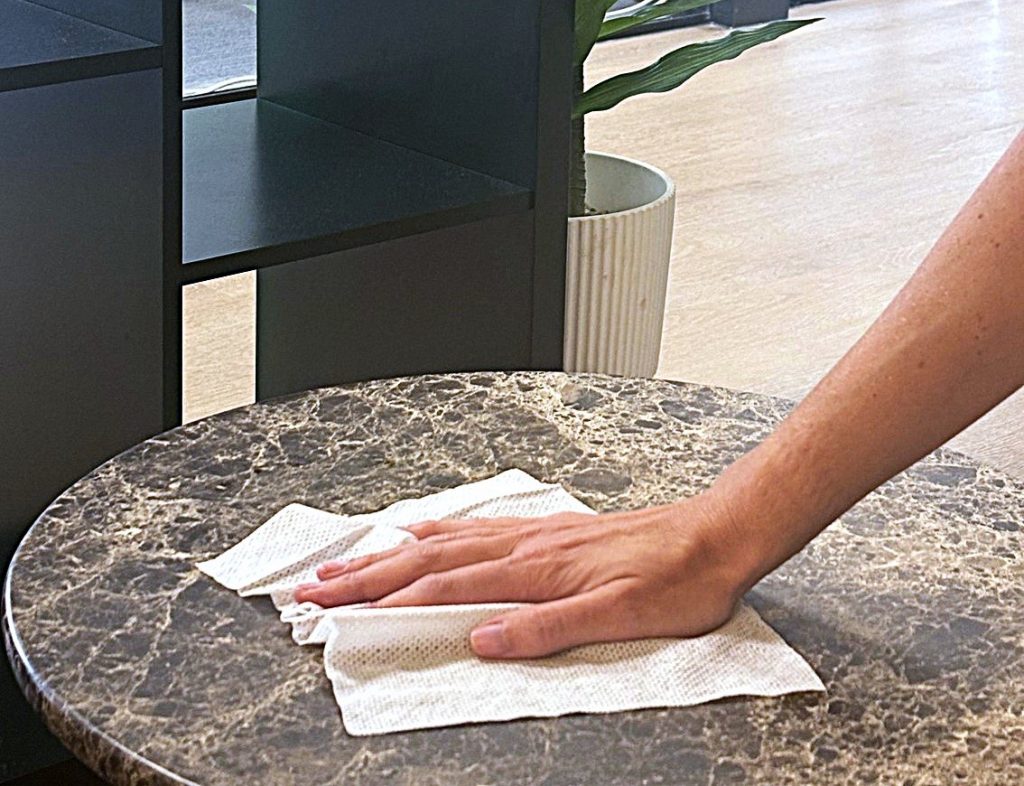
A Safer Option for Staff and Guests
There’s also the matter of air quality. Spraying disinfectants into the air releases tiny particles that can be inhaled by staff and guests, particularly concerning in enclosed or poorly ventilated spaces.
Wipes eliminate this issue entirely. With no aerosol mist and no airborne risk, they are the preferred choice for respiratory safety. Plus, wipes don’t drip, splatter, or oversaturate surfaces, making them safer to use around food, fabrics, and electronics.
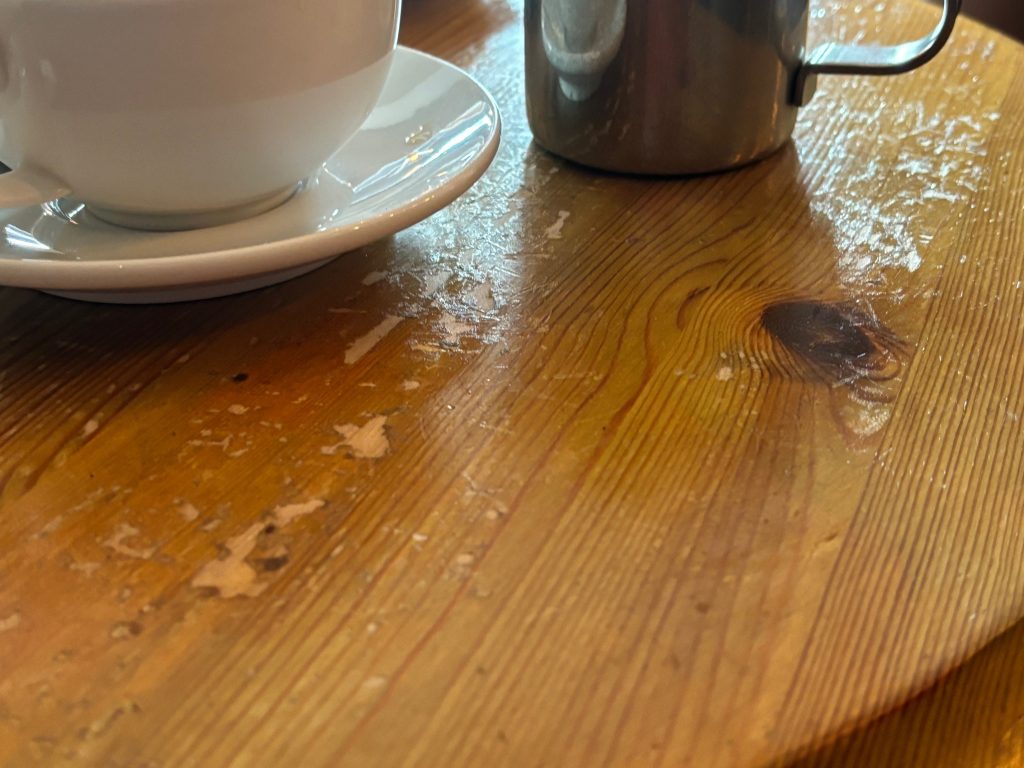
Cost: The Bigger Picture
At first glance, sprays may seem more budget-friendly. But factor in the hidden costs, like the cloths or paper towels needed, extra training time, repeat cleaning due to improper use, and the reputational damage from a poor hygiene incident, and the value proposition starts to shift.
Wipes streamline the entire sanitising process. One product, one step, one less margin for error. The result? Reduced labour time, fewer supplies, and more consistent outcomes.
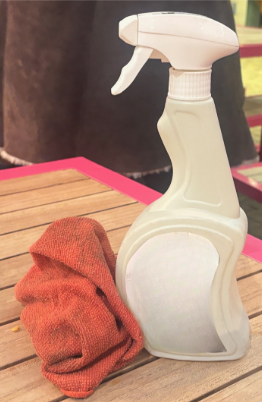
Sustainability: Can Wipes Be Eco-Friendly?
It’s a common concern: are single-use wipes environmentally responsible? The answer depends on the wipe.
Today’s market includes biodegradable options made from plant-based fibres, like Sani Professional® Protect 360º, which are plastic-free and break down naturally after use. These wipes deliver professional-grade hygiene while supporting the hospitality industry’s collective move toward net-zero targets.
On the other hand, many sprays come in complex packaging that’s harder to recycle, and may contain volatile organic compounds (VOCs) that impact indoor air quality and the environment.
The eco-savvy solution? Choose wipes that are locally produced, biodegradable, and packaged with minimal plastic.
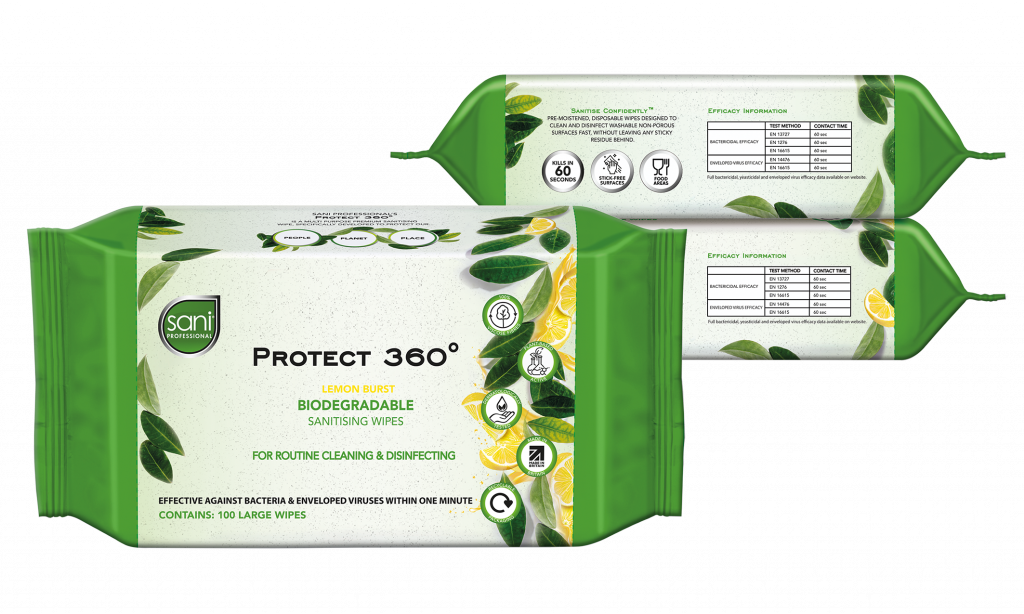
Guest Experience: Perception Matters
You’ve spent hours perfecting your ambience, lighting, plating, and playlist, only for a guest to spot a murky spray bottle and a rag stuffed into a back pocket.
Unfortunately, the optics of cleaning tools matter. Guests are more hygiene-aware than ever, and they judge what they see. A clean, fresh wipe used in full view signals professionalism and care. A reused cloth and mystery spray? Not so much.
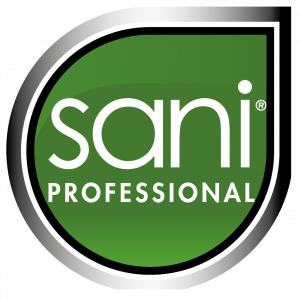
Cleanliness isn’t just about science, it’s about confidence.
The Verdict: Wipes Win in High-Pressure Hospitality Environments
Of course, there’s no one-size-fits-all answer. In slower-paced or back-of-house settings, sprays may still have a role to play. But in the hospitality front line, where speed, safety, guest impressions, and compliance collide, wipes come out on top.
They’re cleaner. Safer. Easier to use. And when chosen carefully, they can even support your sustainability goals.
Introducing Sani Professional – The No.1 Foodservice Wipe Brand
And when it comes to sustainability, there’s no need to compromise. Innovations like Protect 360° biodegradable sanitising wipes are changing the game. These wipes are 100% plastic-free, plant-based, and come in fully recyclable packaging, designed to help venues stay green while staying clean.
“These wipes are thicker, more effective, and even gentle on my skin. No smears, no irritation, and perfect for quick cleans during events when time’s tight,”
— Debbi Scobell, Hospitality & Events Coordinator, Forest Green Rovers (the greenest football club in the world).
In a sector where hygiene and perception go hand in hand, ready-to-use wipes like Protect 360° help teams deliver visible, effective cleaning—quickly, consistently, and responsibly.
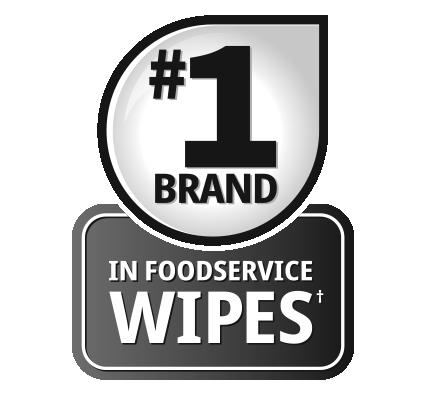
Want to see the difference for yourself?
📧 Request FREE samples today: samples@sanipro-intl.com








